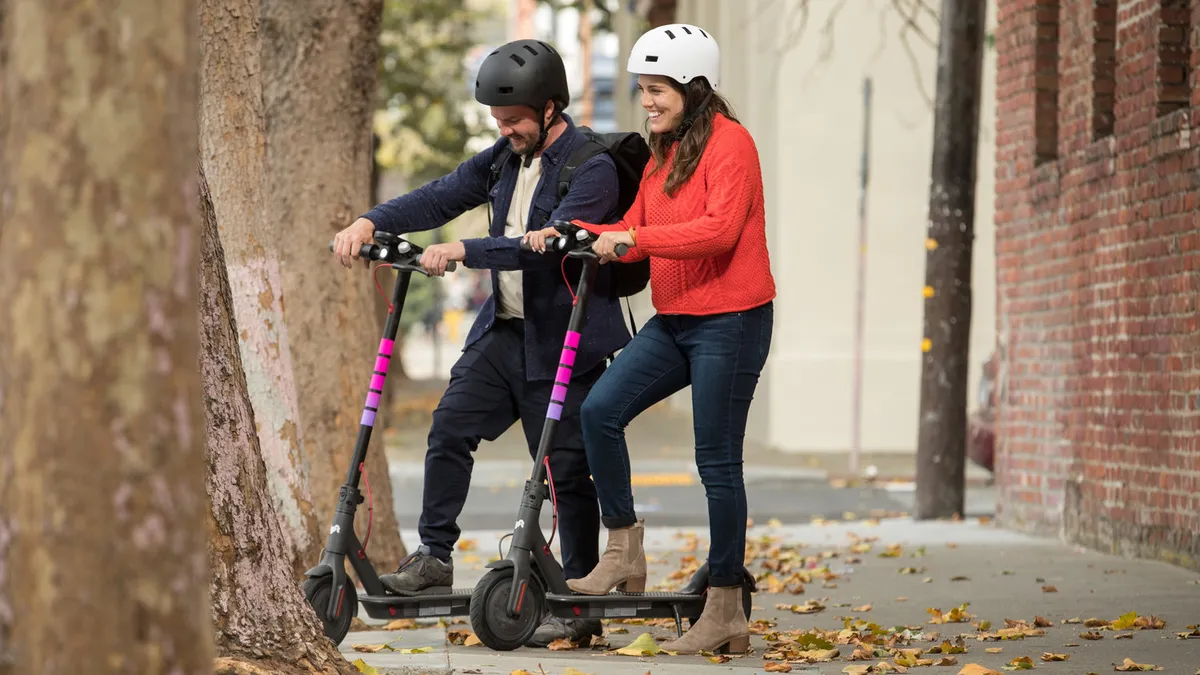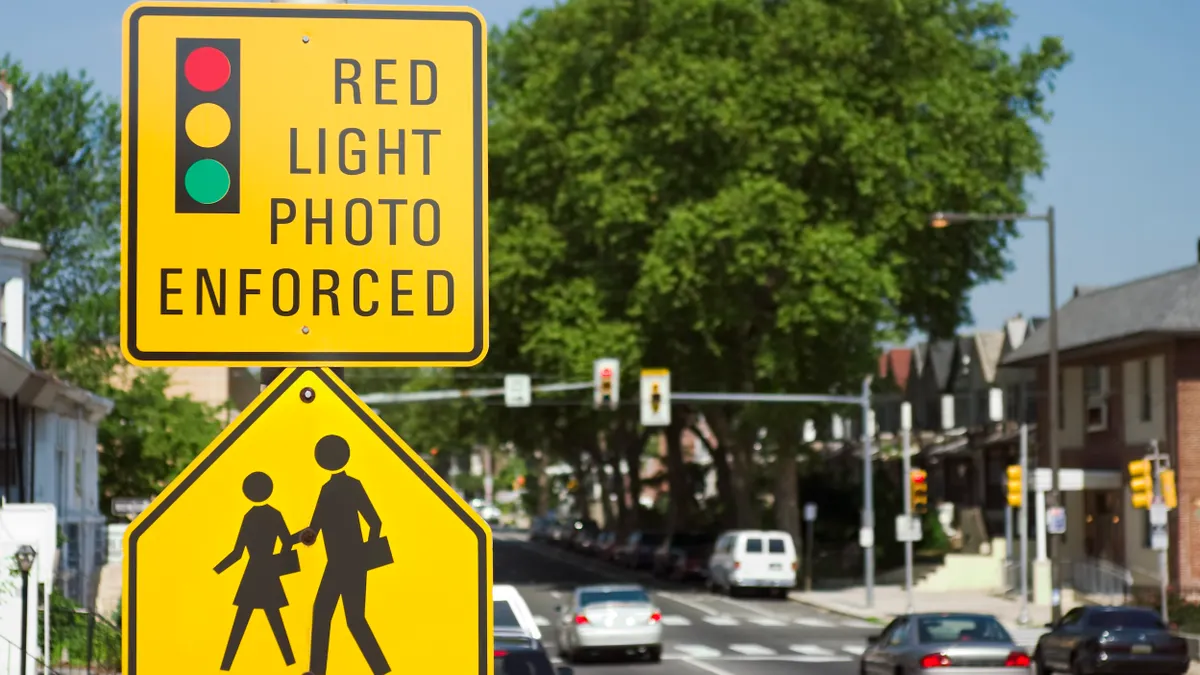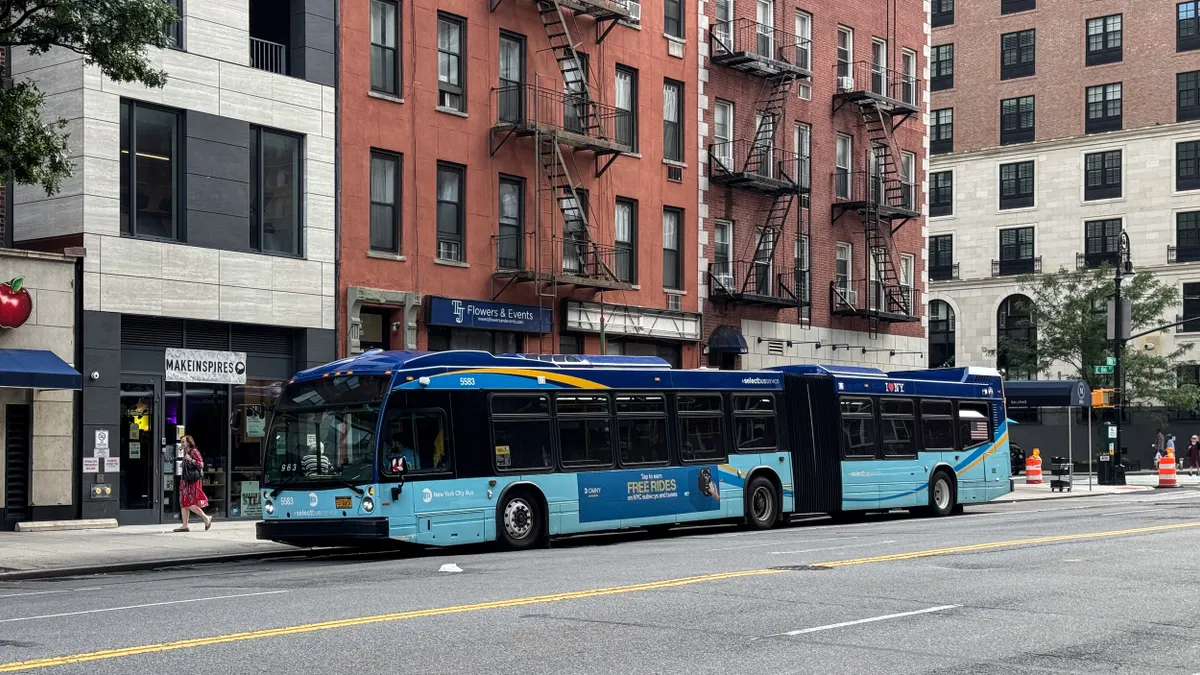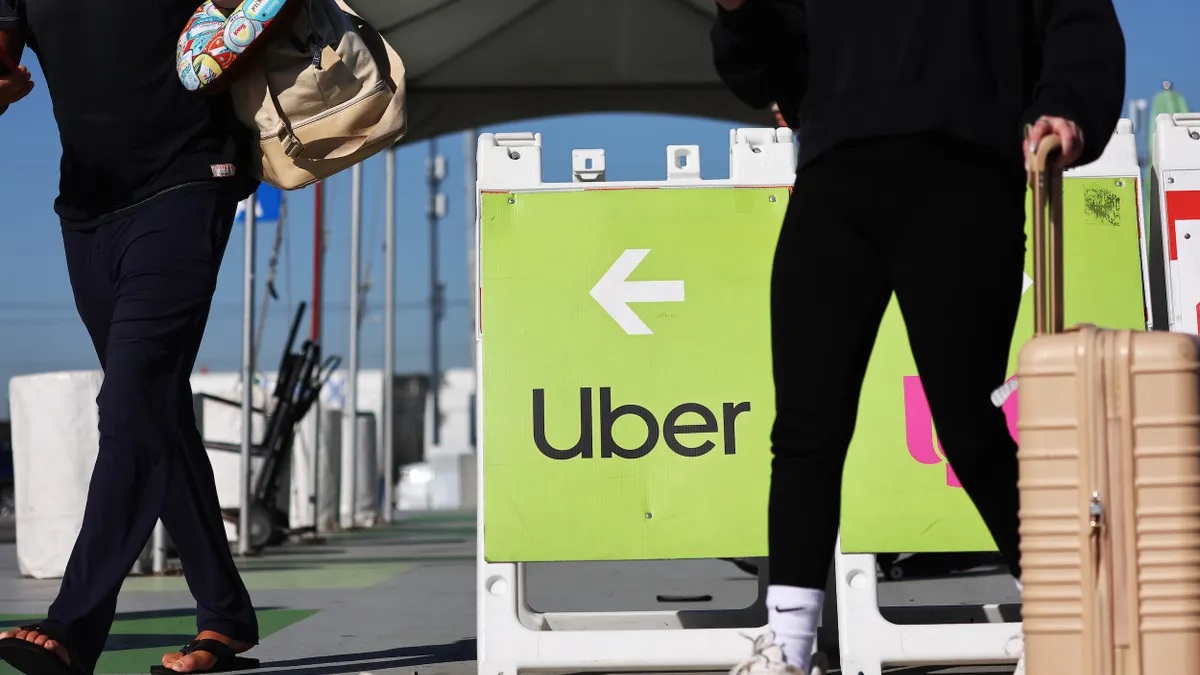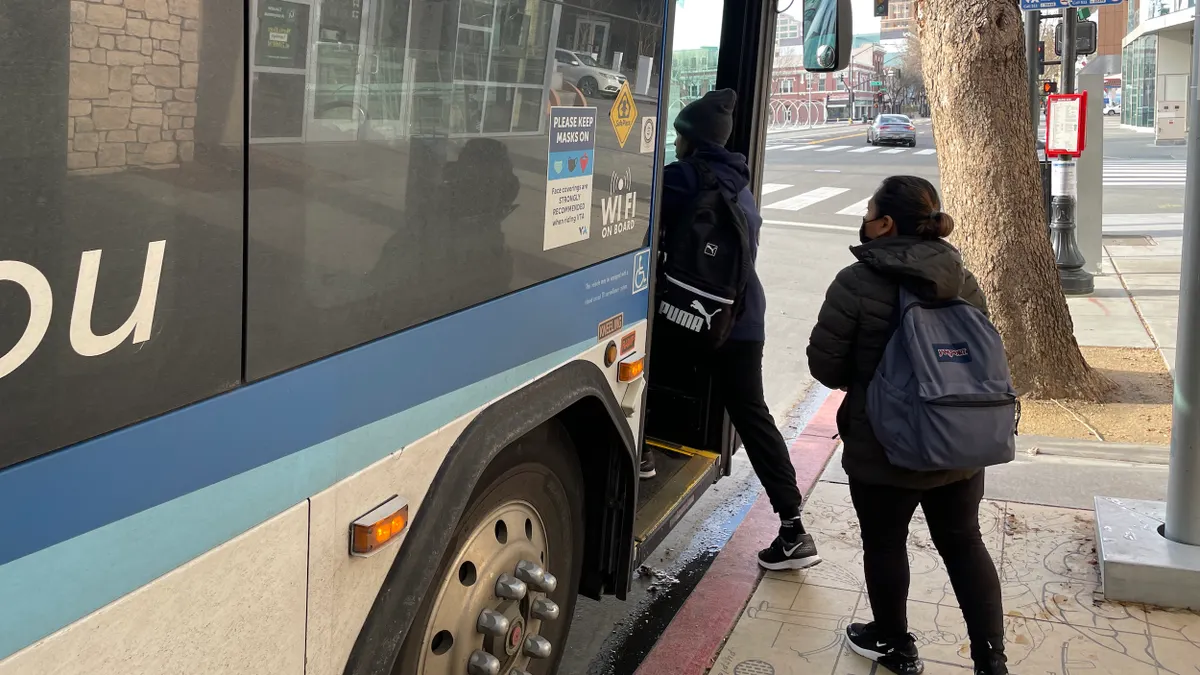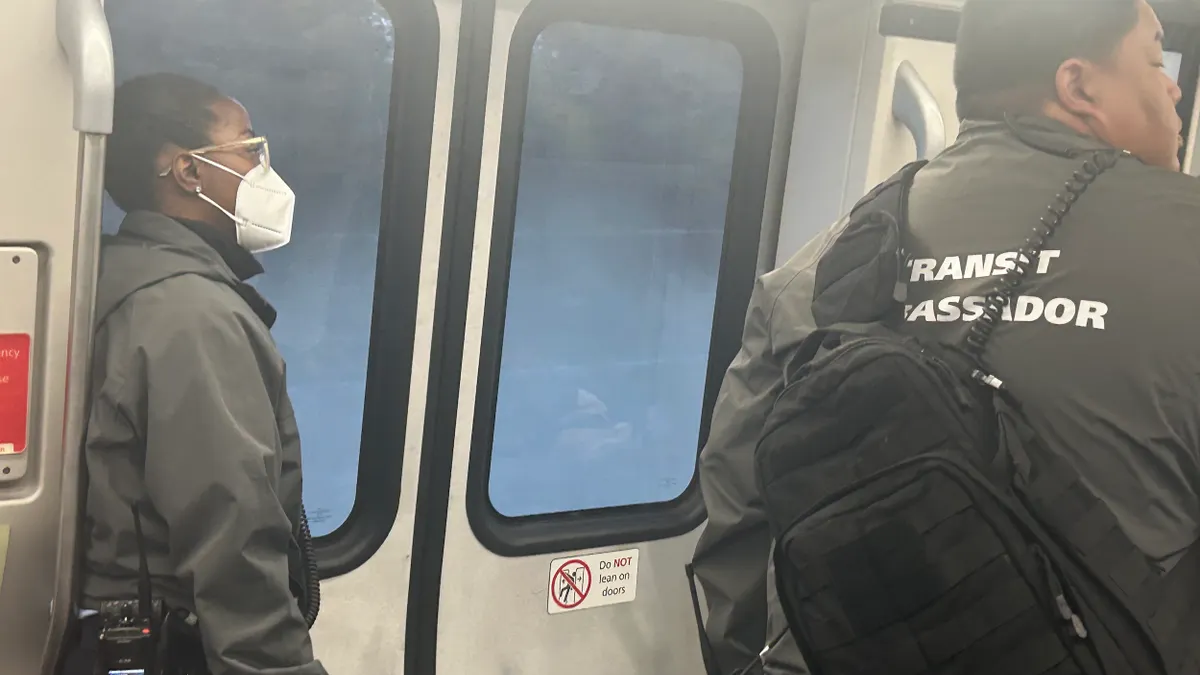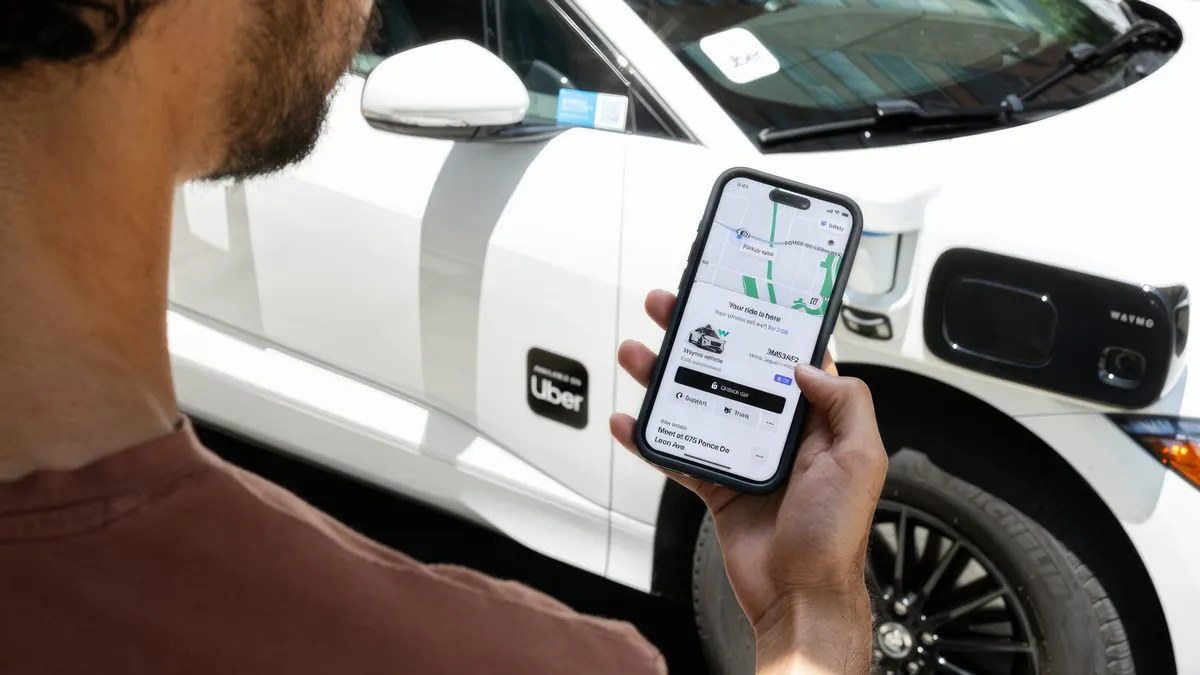As the new coronavirus (COVID-19) pandemic sweeps the globe, micromobility companies face tough choices to balance operational targets with the threats of a growing health crisis, and cities weigh whether the transportation options could pose as a source for the spread of disease.
Lime announced Tuesday it will suspend its bike and scooter service in San Francisco, Washington state and some European markets, then doubled down on the suspensions by extending them to all North American markets and 22 countries on Thursday.
"We are worried about the cities we love and call home, the people we serve, and our colleagues on the ground," Lime CEO Brad Bao wrote in a blog post. "Loving cities means protecting them too. For now, we're pausing Lime service to help people stay put and stay safe."
Bird told Smart Cities Dive that it had removed its vehicles from San Francisco and select European cities, citing a "deep understanding of and empathy towards the cities, communities and people we serve."
Some cities have even stepped up to remove micromobility vehicles from their streets. In an emergency order issued Wednesday, Miami-Dade County Mayor Carlos Gimenez barred citizens from operating any common-use micromobility vehicle, noting that such shared fleets "are not routinely cleaned between users and may before vectors for the spread of the COVID-19/novel Coronavirus."
But elsewhere, scooter and bike fleets remain on the streets, available for users even as governments warn to limit social contact and work from home.
Despite San Francisco's "shelter in place" order that asks citizens to eliminate non-essential travel, bikes and scooters have been allowed to remain in the city. In a letter to operators, the San Francisco Municipal Transportation Agency (SFMTA) said that mobility services are categorized as "essential" and that companies could continue their operations.
"It remains our vision that healthy mobility options for San Franciscans remain available for all essential trips," the letter said.
SFMTA spokesperson Erica Kato said the agency was "deferring to operator discretion as to whether they can continue to operate and minimize the risk of transmission of the virus."
Micromobility has also filled a transportation gap as transit ridership falls in major cities due to recommendations that people not gather in groups of more than 10. Because of this, some micromobility companies are benefiting. For example, the New York Post reported that ridership on the Lyft-owned CitiBike network over the first 11 days of March was up nearly 70% over the same period the previous year.
In Detroit, where public bus service was temporarily shut down because of drivers' coronavirus concerns, Spin was asked to deploy scooters to help fill the gaps, according to spokeswoman Maria Buczkowski. Even as limited bus routes have resumed, the company is continuing to work with the city to supplement service.
"We feel with many cities needing support with ridership dropping on public transportation, and since micromobility by nature allows for social distancing, we feel we can potentially support in ways other transportation may not be able to," Buczkowski told Smart Cities Dive. "We will operate as long as our staff is safe and it makes sense to continue operating."
Public health risk or convenience?
The convenience of shared fleets of bikes, scooters and cars have upended mobility patterns in cities, but could also run counter to public health concerns. Although research is still emerging, there is evidence that the virus that causes COVID-19 can live on surfaces after being transferred by an infected person.
The World Health Organization estimated the survival time to range from a few hours to a few days, but a study due out this week in the New England Journal of Medicine found it could live on plastic and steel for up to 72 hours.
That means shared vehicles could be a possible vector for the spread of the disease, said Mike Van Dyke, an associate professor at the Colorado School of Public Health on the University of Colorado Anschutz Medical Campus. "There’s a lot we still don’t know … but we know it is advisable to clean off any surfaces you touch to avoid getting this virus on our hands," he said.
The Centers for Disease Control and Prevention recommends that "cleaning of visibly dirty surfaces followed by disinfection is a best practice measure for prevention of COVID-19 and other viral respiratory illnesses in households and community settings.”
Van Dyke noted there is more evidence that the disease can spread through close personal contact or by being in enclosed spaces, which means single-person micromobility vehicles could be a safe alternative to public transit or multi-person vehicles (Uber and Lyft have suspended pooled ride-shares to limit transmission). But they will only remain that way if the surfaces themselves stay clean.
Operators contacted by Smart Cities Dive — including Lime, Lyft, Jump, Bird and Spin — said they have increased regular cleaning and disinfection of shared vehicles and helmets.
The global COVID-19 pandemic impacts us all. Bird remains fully focused on the health and safety of the communities in which we live, work and operate. https://t.co/IY9LnqaEqp
— Bird (@BirdRide) March 13, 2020
Lyft said workers are disinfecting all common contact points — including handlebars, seats, brakes, bells, shifters and seat post clamps — whenever bikes and scooters go to the depot. Additionally, contact points on transport vans are being disinfected.
Uber also said it has increased frequency of cleaning for JUMP e-bikes and scooters, per guidance from its "dedicated global team" and public health consultants. "We remain in close contact with local public health authorities and will continue to follow their guidance to help prevent the spread of the coronavirus," the company said in a statement.
None of the companies shared specific information about how often vehicles are disinfected or taken in for inspection. By and large, cities did not include requirements related to disinfection or the spread of disease in their permit agreements with companies, and the quickly-evolving crisis has forced both regulators and companies to be nimble.
Operators also recommend that riders disinfect points of contact on the vehicles themselves (the Environmental Protection Agency has a list of recommended products to fight the virus causing COVID-19), and that users wear gloves to limit transmission and avoid touching their face before washing their hands.
"Ideally, you’d see disinfection after every use, but I’m not sure that’s practical in the real world," Van Dyke said.
He compared the advice to that given around grocery carts: "It’s advisable to clean off the handle of the cart, and there is some personal responsibility there. We’re seeing more of that now ... It’s really a shared responsibility between the owners and the users, and daily cleaning is definitely a step in the right direction," he said.
Will scooters survive?
Just as public transit agencies are dealing with dwindling fares as ridership falls, micromobility companies could see a financial hit if service is suspended for an extended period of time, especially in key markets like the Bay Area. The disruption comes at a difficult time for the industry, as the winter months are typically slower for ridership, and the suspensions could blunt the typical spring rebound.
The industry is also in flux, and companies' reliance on venture capital could mean that they have trouble if the economy is in a lengthy recession out of the pandemic. Even before the pandemic, Lime had announced plans to lay off 14% of its workforce and exit 12 markets in a bid to become profitable, while Lyft said it was leaving six cities and laying off 20 employees.
"This crisis will be a major test for the shared mobility business model," said Pitchbook emerging technology analyst Asad Hussain, noting that reduced movement is a "major headwind" for e-scooter companies. "With an economic crisis marked by social distancing, the shared mobility sector faces significant near-term disruption that will affect revenue and delay funding as investors deploy capital in less risky sectors."
However, Hussain added the vehicles could be an asset during the economic recovery, and that Chinese bike-share operators like Hellobike, Mobike and Didi Chuxing have seen increased ridership.
"We think larger, better capitalized providers are better positioned weather this crisis but anticipate smaller startups in the space to face difficulties raising funding going forward," he said.
To keep up with all of our coverage on how the new coronavirus is impacting U.S. cities, visit our daily tracker.
Editor's note: This piece has been updated to include insights from Asad Hussain at Pitchbook.


